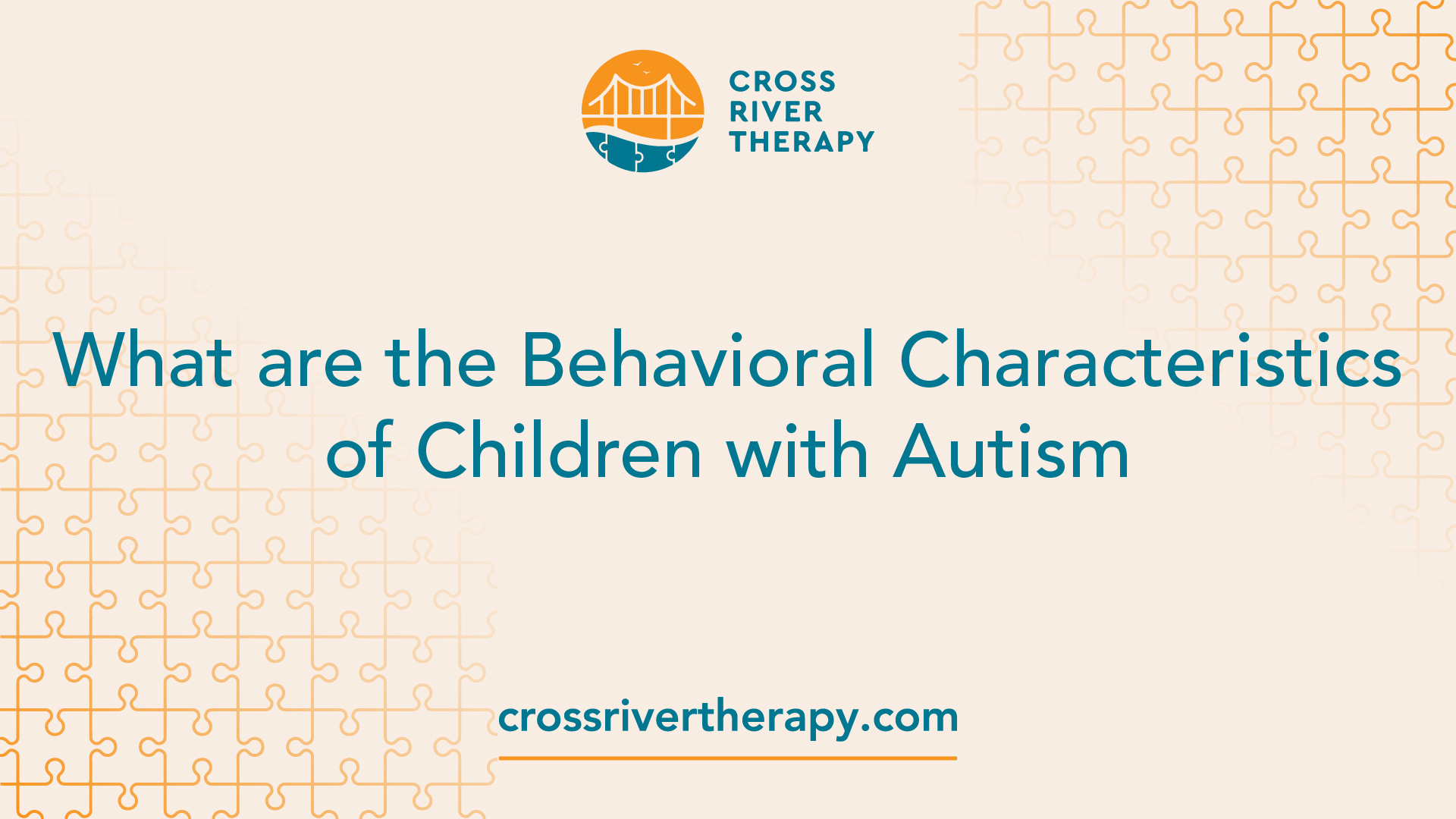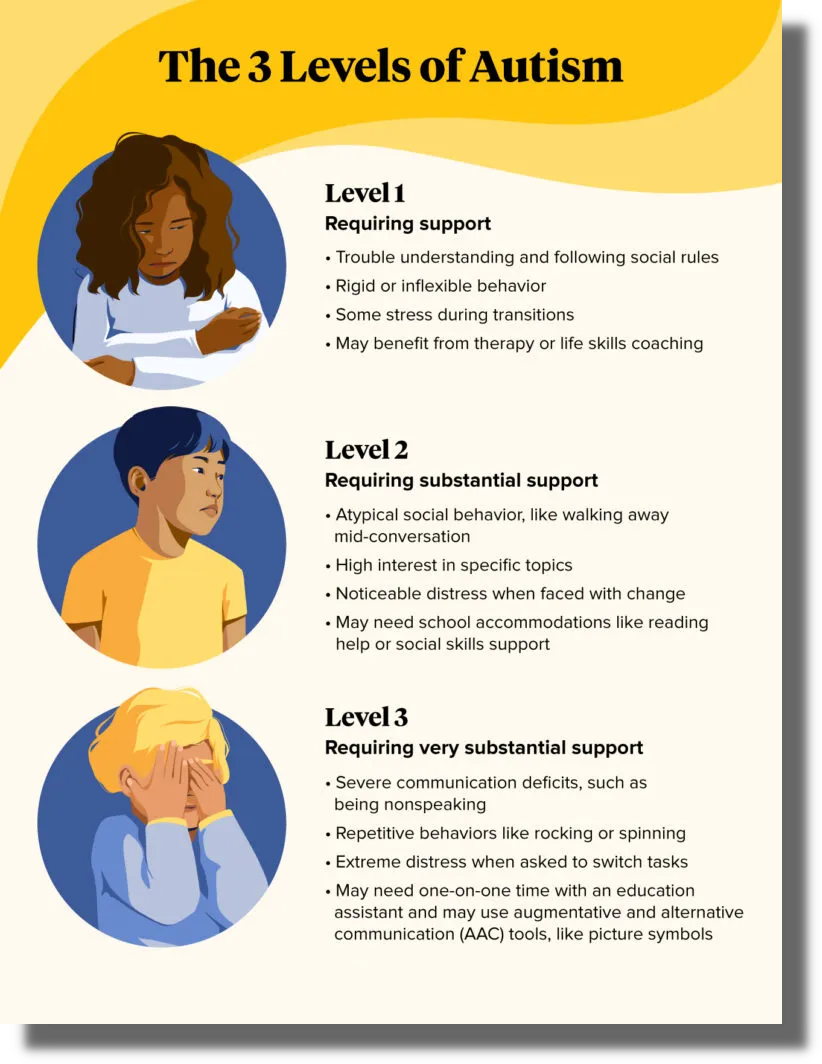Top 10 insights about how an Autism Therapist shapes social growth in autism
Top 10 insights about how an Autism Therapist shapes social growth in autism
Blog Article
Trick Indications and Symptoms to Acknowledge in People With Behavior Autism
When you experience a person with behavioral autism, recognizing vital symptoms and signs is essential. You may observe difficulties in social interactions and interaction, along with a strong need for regimens. Additionally, sensory level of sensitivities can result in frustrating experiences. Recognizing these attributes can boost your support and treatments, yet there's even more to discover about exactly how these behaviors show up in day-to-day situations. Allow's explore what these indications really resemble.
Challenges in Social Communications
When you engage with somebody on the autism range, you may discover they struggle with social signs and interaction. These difficulties can make social interactions feel frustrating for them.
In addition, you may discover that they favor routines and familiar settings, which can restrict their desire to take part in brand-new social scenarios. They may talk about their rate of interests in wonderful information without observing if you're interested when they do involve. This can bring about prejudiced discussions that leave you feeling separated. Comprehending these obstacles can aid you approach interactions with empathy and patience, promoting an extra comfy environment for both of you.
Trouble With Verbal and Non-Verbal Interaction

Non-verbal communication can be much more challenging. You may see an absence of eye call or restricted use motions, which can make communications feel uncomfortable. Faces might not constantly align with the discussion, leading to complication concerning their sensations. Recognizing these signs is vital, as it helps you much better assistance and engage with people on the autism spectrum. By understanding their communication difficulties, you can cultivate extra purposeful connections and give a much more encouraging setting.
Recurring Behaviors and Regimens
Interaction challenges usually go along with various other indications of autism, such as recurring actions and a solid preference for routines. You might discover that people with autism commonly take part in particular, repeated actions, like hand-flapping, shaking, or repeating phrases. These behaviors can offer convenience and a sense of control in a commonly frustrating world.
Routines are equally important; many individuals grow when they follow a structured schedule. You may discover that adjustments to these regimens can result in considerable distress. If they have an everyday ritual of eating breakfast at a particular time or complying with a particular course to school, any interruption can cause anxiety.
Recognizing these patterns helps you understand their actions and offer support. By suiting their requirement for regular and enabling recurring activities, you can produce a much more comfortable environment that relieves their obstacles.
Sensory Level Of Sensitivities

Common Sensory Triggers
Sensory level of sensitivities can significantly affect everyday life for people with autism, as certain stimulations typically cause overwhelming reactions. Usual sensory triggers consist of loud sounds, bright lights, and solid scents. You could discover that sudden noises, like alarms or alarm systems, trigger stress and anxiety or distress. Fluorescent lights in shops can feel rough and uncomfortable. Structures can likewise play a significant duty; rough materials or specific food textures might be intolerable for you. Additionally, crowded areas can overwhelm your detects, making it tough to concentrate or loosen up. Comprehending these triggers can assist you handle more info your setting better. By recognizing what affects you, you can take actions to lessen pain and enhance your daily experiences.
Behavioral Responses Clarified
Comprehending your behavioral feedbacks to sensory sensitivities is essential, as they often reveal just how you communicate with the globe. You might discover that particular sounds, lights, or structures bewilder you, bring about stress and anxiety or pain. When encountered with these stimuli, you could take out, cover your ears, and even react boldy. These actions aren't just quirks; they're your method of managing overstimulation. You might also discover on your own seeking details sensory experiences, like deep stress or quiet environments, to aid ground on your own. Identifying these patterns aids you recognize your needs much better and can assist just how you interact them to others. By recognizing your sensory sensitivities, you can function in the direction of producing an atmosphere that feels a lot more comfortable and manageable for you.
Coping Strategies Overview
Recognizing your sensory level of sensitivities is simply the initial step; currently it's time to explore coping strategies that can help you handle those experiences effectively. Start by creating a sensory toolkit tailored to your needs. This might consist of noise-canceling headphones, fidget toys, or calming fragrances. Developing an organized regimen can also supply predictability, decreasing stress and anxiety around sensory overload. Take breaks in a silent room to regroup when you really feel overloaded. Exercising mindfulness techniques like deep breathing can aid ground you in the minute. Furthermore, connect your requirements with those around you; having helpful good friends and family members can make a massive distinction. Keep in mind, finding what works best for you might take some time, so be patient and open to attempting brand-new methods.
Restricted Interests and Focus
While several individuals establish a variety of interests, those with autism typically demonstrate restricted rate of interests and an extreme concentrate on certain topics. You could notice that a person with autism can spend hours delving right into their favored subject, whether it's a certain kind of train, a particular motion picture, or a clinical idea. This intense focus isn't simply a pastime; it can end up being a central part of their identity and social communications.
You may locate that discussions revolve around these passions, and they may battle to involve in broader topics. By understanding and acknowledging these restricted rate of interests, you can cultivate an encouraging atmosphere where they really feel valued and understood, permitting for more significant links and interactions.
Psychological Policy Difficulties
People with autism often encounter challenges in emotional regulation, which can be affected by their intense concentrate on particular passions. You might see that when a person is deeply taken part in a favored activity, they can experience solid feelings, whether excitement or irritation. This intensity sometimes makes it hard for them to shift gears or manage their feelings when things do not go as prepared.

Variability in Developing Turning Points
When it comes to developmental turning points, you'll observe that people with autism commonly show a wide variety of irregularity. Some may hit turning points promptly, while others could lag behind or progress at a various speed. You may see a child succeed in language abilities yet battle with social communications. This inconsistency can be complex, as traditional criteria do not always apply.
It's necessary to identify that each person's trip is unique. Observing these patterns can assist you understand their toughness and requires much better.
Often Asked Concerns
Just How Is Autism Detected in Children and Adults?
To detect autism in grownups and children, professionals assess actions, communication skills, and social communications. If a specific meets the criteria for autism spectrum problem., they usually make use of standard tests, meetings, and monitorings to identify.
Are There Various Kinds of Autism Spectrum Disorders?
Yes, there are various kinds of autism spectrum conditions, consisting of Asperger's syndrome and pervasive developmental disorder-not or else specified. Each kind differs in intensity and features, so comprehending these distinctions can help you far better assistance individuals with autism.
What Therapies Are Effective for Individuals With Autism?
When thinking about effective treatments for individuals with autism, you'll find options like Applied Habits Analysis, speech treatment, and work treatment. Each method can aid enhance communication, social skills, and day-to-day operating customized to specific demands.
Can People With Autism Lead Independent Lives?
Yes, individuals with autism can lead independent lives. With the ideal support, abilities training, and sources, you can aid them create self-sufficiency, take care of day-to-day jobs, and grow in numerous settings, cultivating their freedom.
How Can Families Assistance Loved Ones With Autism?
You can sustain your liked ones with autism by producing a structured atmosphere, encouraging their interests, exercising persistence, promoting communication, and advertising social skills. Commemorate their achievements, regardless of just how small, and build a helpful area.
Although several individuals on the autism range can make use of and comprehend language, they frequently encounter considerable obstacles with both non-verbal and verbal communication. Identifying these signs is essential, as it assists you far better support and involve with people on the autism range. You could observe that people with autism commonly involve in certain, repetitive actions, like hand-flapping, shaking, or duplicating phrases.Sensory level of sensitivities can significantly impact daily life for individuals with autism, as particular stimuli commonly cause frustrating responses.When it comes to developing milestones, you'll observe that individuals with autism typically reveal a vast array of irregularity.
Report this page